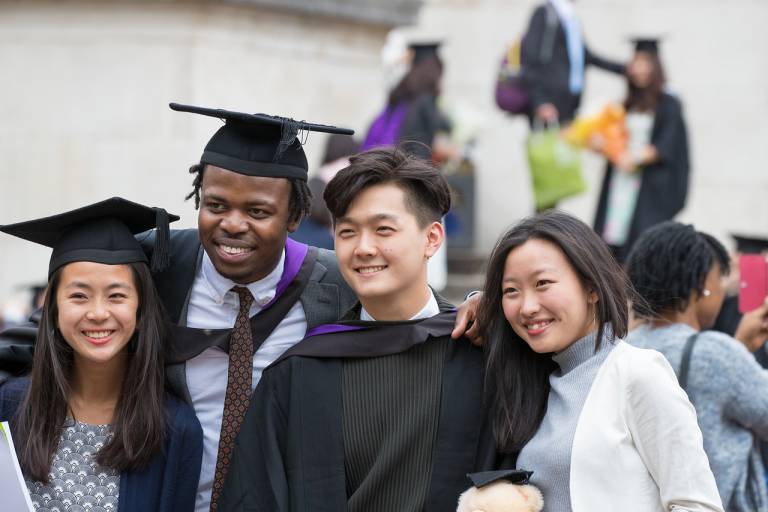BME attainment gap at UCL ‘unacceptable’, says Provost
18 April 2018
Conference launches project to ensure success for all students

A project to eliminate the gap in attainment between black and minority ethnic (BME) and white students were unveiled at UCL’s first BME Attainment Conference at the Institute of Education on 10 April.
Staff and student delegates from UCL and other London universities heard that analysis of UCL data shows that there is a small but statistically significant discrepancy in the rate of good degrees achieved by BME students compared with white students, despite entering UCL with the same high entry qualifications. While UCL students, whether white or BME, tend to perform well above national benchmarks, this discrepancy, known as an ‘attainment gap’, has persisted for the past few years and stood at 5.8% in 2016-17*.
Opening the conference, UCL President and Provost Professor Michael Arthur said that the BME attainment gap at UCL was ‘unacceptable’, and urged a move away from arguments about data to focus on making change happen, adding ‘I would like to see the gap disappear in three to five years time.’
Guest speaker Jason Arday, Senior Lecturer in Education Studies at Roehampton University and UCL alumnus, said that 40 years of interventions designed to close the gap had failed because these interventions were based on the deficit model, focusing on the students’ perceived weaknesses, rather than on the persistent racism and institutional structures in UK higher education. Dr Arday said, ‘If you can’t see yourself reflected in the curricula, it’s going to affect attainment,' and drew on his own experience of ten years of higher education, during which he was not once taught by a person of colour.
Delegates heard from:
- Nona McDuff OBE about the work of Kingston University to close the attainment gap from 29% to 11% by changing the university, not the students;
- Professor Anthony Smith, UCL Vice-Provost (Education and Student Affairs), who acknowledged the multiple factors behind the attainment gap and stressed the importance of working with students as partners; and
- Ijeoma Uchegbu, Professor of Pharmaceutical Nanoscience and Provost’s Envoy for Race Equality, who said that life is a competition and you need a small competitive edge, and that is being taken away from our BME students. ‘We will not put up with this,’ she said.
The BME attainment project team, Dr Julie Evans and Paulette Williams, explored the negative impact of the attainment gap both for individuals and more broadly, and detailed the areas where work is needed to create an inclusive education at UCL, including curriculum, belonging, strategic leadership, and staff diversity.
Next steps
The team outlined the next steps in the project, will work with Deans and faculty leads to analyse faculty-specific data and introduce a toolkit of interventions to close the attainment gap, including:
- Inclusive curriculum health check for all UCL programmes, as part of the Annual Student Experience Review (ASER) process;
- The appointment of faculty leads to champion BME attainment;
- The launch of a resource bank drawing on best practice and case studies from higher education around the world;
- Unconscious bias training for staff who teach and support teaching.
* Due to data discrepancies, this was figure was changed on 13 May 2019.
 Close
Close

